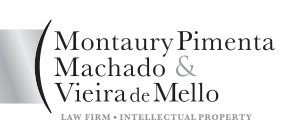Advertising Slogans Will Now be Accepted by the Brazilian Trademark Office
The Brazilian Industrial Property Law (Law No. 9.279/96 — “BIPL”) prohibits the registration of “sign or expression used only as a means of advertising”, according to item VII of section 124.
The interpretation given by the Brazilian Trademark Office (“BTO”) to this legal provision has been the subject of various criticisms for its excessive rigidity, sometimes ignoring the presence of other elements in the trademark besides the one considered an advertising slogan, at times presuming that the trademark application would be used solely as an advertising sign in the future, for example. However, a significant shift is on the horizon: the BTO recently announced changes to its interpretation of item VII of section 124, establishing new guidelines in its analysis of the registrability of trademarks that contain advertising elements.
Objectively, the proposed new interpretation, to be implemented in the BTO's Trademark Manual on November 27, is that a trademark application will only be rejected if it cumulatively performs an advertising function and fails to perform a distinctive function. In that context, the sign will be incapable of exercising a distinctive function if it contains as an advertising element something that has become customary in everyday language or in the loyal and constant trading practices, in line with the provisions of art. 6 quinquies B (2) of the Paris Convention. In other words, if it is considered original and therefore not in the public domain, it will qualify for registration as a trademark, even if it serves an advertising function.
According to the new proposed wording of the BPTO Trademark Manual, a sign fulfills an advertising function when it: (i) recommends the marked products or services; (ii) discloses qualities of the marked product or service; (iii) conveys the company's mission, values, ideas or concepts; (iv) aims to persuade the interlocutor with the intention of prompting action; or (v) highlights the marked product or service in relation to competitors. The registrability of the sign will depend on its ability to be perceived as something more than just an advertising expression, with sufficient distinctiveness to identify the services or products based on an analysis of the overall impression of the trademark, which is formed by all its elements. This distinctive function of the sign will not be perceived when the advertising expression has become common use in the market segment, or is exclusively descriptive, comparative, promotional or complimentary, or lacks originality. Therefore, the prohibition provided for in item VII of section 124 of the BIPL will no longer apply to signs capable of simultaneously exercising both a distinctive and an advertising function, such as signs consisting of a combination of distinctive and advertising elements, in a separate form, or which integrate elements that, in a single form, exercise both functions.
This new policy represents an important milestone for trademark owners, in line with international practices, as well as with the recently established understanding by the Brazilian Superior Court of Justice, which ruled in favor of the registration of a trademark rejected by the BPTO due to an advertising element in its composition. The BPTO’s new interpretation aligns with a broader, more flexible understanding of trademark law that recognizes the evolving nature of branding and advertising in today’s marketplace. For brand owners, this means that slogans, catchphrases, and other promotional expressions can now be integral parts of their trademarks, opening up opportunities for more creative and engaging branding strategies, provided these marks are capable of distinguishing their products or services from those of competitors.
However, while the new guidelines are promising, only actual market use can reveal whether a given expression genuinely functions as a trademark or merely as a slogan. Over time, as a trademark is used in commerce, its role may evolve, and the initial assessment of distinctiveness could be called into question. In such cases, a non-use cancellation action could serve as a mechanism to reassess whether the trademark retains its distinctive function or is predominantly used as an advertising slogan, without truly identifying the source of goods or services.





